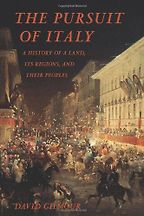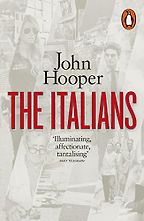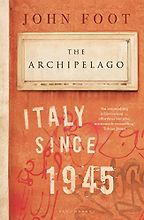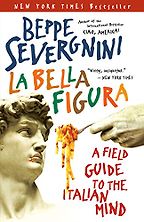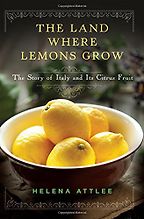We were originally planning to talk just about Italian politics, but the books you’re recommending are a bit broader than that: they also cover Italian history and how to understand Italy and Italians. Four of them are by non-Italian authors. Can you start by telling me how you chose them?
I read these books a few years ago because I liked the idea of exploring how some concepts related to Italian politics or history were translated into English. In Italy, it’s quite funny: we tend to give a name to everything. So, in Italy, we have principles: if the sun rises every morning, we say there is ‘the principle of the sun rising every morning.’ We tend to define everything with a word and there are words we struggle to translate into English. For instance, there is a noun, dietrologia, which is the tendency to see a hidden reason behind every historical fact. There are lots of words like that. So I was curious.
The first book I read was The Pursuit of Italy, which is history as well as politics. David Gilmour goes right back to the Middle Ages and even further. He says something that is quite clear, which is that Italy is struggling to reach an identity in the same way England or Germany or France have. The French can be very nationalistic. Germany is a young country too, but it has a long history in terms of kingdoms and there is a strong German identity. They all had empires, the German empire didn’t last as long as the others, but France, England and Spain all had large empires. Italy tried to colonize Northern Africa, but it lasted a very short time.
Italy is a young country. Before its unification in 1861, it was fragmented into various territories, kingdoms, and duchies subject to foreign influence—if not always proper control. Even after the kingdom of Italy was created, it was a long journey before the country reached its current size and shape. Rome was annexed in 1870, while the northernmost regions of Trentino Alto Adige and Friuli Venezia Giulia only in 1920. In the preceding centuries, Italy was constantly subject to foreign domination—sometimes enlightened, sometimes less so. There is a bit of a need for Italy to reach the same degree of self-awareness as other European countries.
The Pursuit of Italy doesn’t just recognize this lack of identity, it even implies that maybe Italy was better off fragmented—when we had city-states in the Middle Ages and in the Renaissance. It’s a very striking theory.
By looking at Italy from the outside, do you feel it’s a very different perspective from the Italian one?
Italians are very harsh towards themselves. Not individually—I think they have quite an ego—but as a community. It’s like Britons are always complaining about the weather; Italians are always complaining about themselves. All these books are really praising Italy, in the end, in terms of its history, its society. They like how Italy is colorful. They see the cultural treasures, the natural treasures. They’re all in love with Italy.
They love Italy, but do they offer an accurate picture of the country?
Very accurate. I think more Italians should read these books. It’s easier when you’re coming from abroad. You are more detached. You have a different culture. You can see things that those who have lived in Italy all their lives are missing.
They do criticize Italy too: the politics, the public sector. These are not up to the level they should be for the country and have not been for a long time. They find some stuff about Italians amusing. In the UK, if you see the traffic light is red, it’s red. In Italy, if it’s red, but the road is empty, it’s probably an optional red.
Italians definitely struggle to abide by rules. In this, I’m a bit Italian. The Germans are extremely precise about rules. We struggle a bit, especially in the public sector. When Italians work for their own business or family, they’re precise and very motivated. When it comes to the public sector, they struggle.
Do you think that’s a result of the history?
Probably it helps if you see that working with each other is leading somewhere. If you’re proud of your war achievements (if we can ever talk of ‘achievements’ in a war), like the UK or the US, or if you had an empire and you saw a reward in working together, you were more motivated to do so. There is also a big difference between North and South.
Foreign domination of Italy, especially in the South, had an impact. Broadly speaking, the Northwest was hegemonized by the French, the Northeast by the Austro-Hungarians and the South by the Spanish Bourbons. The South saw more domination from afar. Sicily is a good example. The late writer Andrea Camilleri once reminded us that: “Sicily has suffered 13 foreign dominations from which she has taken both the best and the worst. The sequence of different cultures has made Sicily a fascinating place, quite unlike any other.” Perhaps, the development of organized crime in Sicily had something to do with a feeling of abandonment sensed by the locals, continuously ruled—even with ruthlessness—from afar.
Italy’s fascist experience also still hurts the popular conscience. Saying words like ‘patriotism’ or ‘nation’ in Italy can be quite tricky, as the new right-wing government has seen.
“The idea of working together as a society is Italy’s weak spot.”
The country is very stretched and the geography doesn’t help. It takes ages to reach southern Italy to this day, which isn’t good for communication. I read that in the Middle Ages and even up to the 18th and 19th century, for traders, it was easier to circumnavigate Italy with a ship than trying to go through the mountains in central Italy.
So it’s not surprising Italy has struggled to develop a sense of unity and self-awareness as a country. Corruption and tax evasion happen more frequently than in any other EU founding country. Political instability is also an issue: since Italy became a republic in 1946, no minister has lasted a full term yet.
So there are various factors, but Italy is still the eighth-largest economy in the world. We have exports, the North is very productive. If so many people outside of Italy want to drive Italian cars, wear Italian clothes, eat Italian food, and use Italian furniture, it means there is a capacity to generate ideas, to manufacture items and then to promote them. It’s a great country. There is a lack of civicism—the idea of working together as a society is Italy’s weak spot.
Let’s turn to the books you’ve recommended to better understand Italy and Italian politics. Let’s start with the history book about Italy you already mentioned, The Pursuit of Italy by David Gilmour. At the beginning, he talks about meeting a judge at a dinner in a villa built by Lorenzo de’Medici who tells him Italian unification was a bad thing and Garibaldi “did Italy a great disservice. If he had not invaded Sicily and Naples, we in the north would have the richest and most civilized state in Europe.”
Yes. The region that triggered unification was Piemonte, which is in the north. The first time some envoys from Piemonte went down to Sicily they couldn’t understand the dialect. The first prime minister of Italy preferred to speak French. Now it’s more homogenous because of TV and, after 150 years of unification, people have travelled and there is a degree of uniformity. But to this day, there is still a bit of a divide. One of the major parties in Italy used to be called the Northern League. Their main goal was for people in northern Italy to retain their own taxes under some sort of fiscal federalism.
In The Pursuit of Italy, David Gilmour tries to show not only that Italy is still an incomplete work, but that Italians aren’t necessarily better off under a single flag. After all, for centuries the peninsula thrived in trade and arts within a fragmented system of cities and states. The competition between self-governing Italian city-states (Florence, Milan, Ferrara, Mantua, etc.) from the Middle Ages onwards fostered the surge of Italian arts, philosophy and science. Early modern Italy is considered by many the cradle of modern Western political thought and civic freedom.
Of course, there was a limit to the military and economic power that a single comune could reach. Political fragmentation is a recurring feature in Italian history.
The Italian regions are still culturally very diverse, and nationalism is seen by many as an evil forcefully imposed upon people, especially during Fascism. Gilmour is particularly tough on the leaders of the Risorgimento, the movement that eventually led to the country’s unification, whom he deems overrated, and on modern/contemporary Italy, which he sees as plagued by corruption and political misbehaviour.
I like the way he goes back to ancient times for this idea of Italy, starting with Romans like Cicero and Virgil. It’s easy to forget all the things that happened in this place we call Italy over the millennia.
Gilmour quotes the Austrian statesman, Klemens von Metternich (1773-1859), who argued that Italy is “only a geographical expression.” We can now say with ease that he was wrong. He said that in 1814, so Metternich should probably be forgiven.
Let’s turn to John Hooper’s book, The Italians. He also makes this point of what an extraordinary place Italy is: “One nation — even if it did not consider itself a nation until quite recently – produced the only empire to have united Europe and the greatest cultural transformation in the history of the West…Along the way, the Italian peninsula emerged as the pre-eminent seat of Christendom.”
John Hooper is a long-time Rome correspondent for the Economist. His book dwells more on contemporary Italy and its socio-political peculiarities. He cleverly dissects the Italians’ inborn difficulty with ascertaining truth, the enduring role of the Catholic Church, the hard-to-eradicate strength of guilds and corporatism, the sometimes funny dynamics within Italian families, the phenomenon known as Berlusconism, and the question of national identity I talked about before.
You talked about Italy’s political instability, with no prime minister making it to a full term. Is this the best book for understanding that phenomenon?
Probably, yes. You can easily summarize the recent history of Italy the French way, with the idea of three republics. The first republic was the first 50 years, when we had a single political party ruling the country, the Christian Democrats. It was not a dictatorship. It was a completely democratic setting, but the strong fear of communism made most voters coalesce around the centre—also because the painful memory of fascism allowed no leaning towards the right. It was an age of economic boom for Italy, but the country also witnessed an increasing chasm between the well-managed private sector and businesses and a gargantuan, inefficient public sector.
It was an era of strong polarization between the Christian Democrats and the powerful, USSR-backed Italian Communist Party, but when you don’t have a change in the ruling party for 50 years, you have corruption, cronyism, wrongdoing and overspending. Then, all of a sudden, in 1992, a nationwide judicial investigation, mani pulite (‘clean hands’), swept away almost an entire political generation. The Christian Democrats and many other parties, overwhelmed by their judicial ordeals, ceased to exist.
“Since Italy became a republic in 1946, no minister has lasted a full term”
There was a huge gap which was filled almost immediately by Silvio Berlusconi, a tycoon-turned-politician. The second republic was born. It was a completely different way of doing politics. Before it was politics by profession, you had to wait until you had grey hair before you could reach any post. Berlusconi’s entry into politics—and a growing number of scandals—opened the way to another 20 years of extreme political polarization in Italy, this time between Berlusconi and the Left.
The third republic started when Berlusconi lost influence. In 2013, the Five Stars, a bottom-up movement led by comedian-turned-politician Beppe Grillo—who is from my hometown, Genoa—achieved an astonishing result at national elections. He created a party that suddenly got 25% of the vote.
What did they stand for?
They stood on a fight against corruption, a reduction of parliamentary privileges and environmental protection. Most of its MPs were newcomers with no political experience and the new Italian parliament was the youngest, by average age, of the republican era. The Five Stars decided not to form or support any government, so for the subsequent five years Italy was governed by a left-to-right grand coalition that included both the Social Democrats and Berlusconi’s party, though they eventually left the coalition.
After the 2018 election, Five Stars finally entered government—not once, but twice. The first time, rather shockingly, it was with the rightist (Northern) League and then, after a cabinet crisis, in coalition with the left-leaning Social Democrats. This is another feature of Italian politics: trasformismo, the ability to switch coalition.
Now the situation is more scattered. There are more parties than there used to be. It’s another era again. There is no room right now for politicians by profession, so there is no one who has had 10, 20 or 30 years to hone their craft. You can have a political party with 3% of the vote that then gets 30% at the following election. Politics is very liquid nowadays, in Italy.
Why did Italians like Berlusconi so much? I always think of Italians as not putting up with much nonsense.
I think they were very tired with the old politics. At a certain point, politicians didn’t even bother to make promises, because you voted for a symbol. You voted for the Communist Party or you voted for the Christian Democrats or a tiny minority for the right wing. Berlusconi brought in some freshness at the beginning. He made promises. He said, ‘I’m going to deliver this.’ It was very analytical, very detailed.
Also, remember he brought commercial TV to Italy. He was very successful with his football team, and football is an obsession for Italians. So he was in every household and people linked him with success, which always helps. I voted for him initially. I was 19 years old.
“Italians definitely struggle to abide by rules”
What I was surprised by is when people kept voting for him. He lost two national elections, but he always succeeded in coming back. How could you vote Berlusconi in 2008, after he had been in power for five years? And again, five years later? He didn’t win but performed well. A brilliant journalist once said that Berlusconi voters fall into two categories, either they’re clever and they vote for him because it’s in their interests or they are fools. I don’t know, it’s millions of people, so it’s not easy to categorize them. It’s a bit of a mystery. Maybe, sometimes it’s a subconscious idea of tearing everything apart?
In that sense, he was maybe a bit of a precursor for Donald Trump and some of the others.
Yes, it’s the same with Donald Trump. I think sometimes people want to build and sometimes they want to destroy, so they can build again.
But Italians don’t like to be lectured. You have to make jokes. Berlusconi is quite sick right now and there was a TV show. People were asking what his greatest achievement is. I said his greatest achievement is that he will never have to pay for all the things he did which were against the law.
We’d better turn to your next book. This is The Archipelago: Italy Since 1945 by John Foot, who is a professor of modern Italian history at Bristol. It starts with Primo Levi returning from Auschwitz trying to publish If This Is a Man, and covers cycling and the Giro D’Italia as well as Toscanini. It’s a very nicely done history of this entire period.
Yes, this book is an ideal starting point for a reader with limited knowledge of recent Italian history. It’s a very detailed and well-researched chronicle of Italian history after 1945 and the fall of fascism. It doesn’t cover politics alone, it also focuses on other factors that have shaped Italian society: the rise of consumerism, the football industry, music, cinema, all sorts of things. It’s a very good overview.
I read a review which said that this book is very good on the description of what happened but does not focus so much on why it happened. For that, you’re better off looking at the first two books.
Can you explain what’s been happening recently in Italian politics? Tell me about Giorgia Meloni and why she’s so popular.
Giorgia Meloni is the first female prime minister of Italy. She is the founder of Fratelli d’Italia, Brothers of Italy, a right-wing sovereigntist party. In terms of her popularity, remember that this was an election with the lowest turnout ever, at under 64%. Normally it’s 70 or 80%. Of those who voted, she got 26% of the votes. This is a factor you have to consider. She was the only candidate who hasn’t been in office in the last 10-15 years, so I think people partly voted for her by exclusion.
So far, she’s acting in a conservative way. In terms of economic reforms, she’s following the EU completely. When it comes to Ukraine, she is following NATO. The problem is, she wants to leave a mark and if she keeps following the EU or NATO, that’s not going to happen. There’s a bit of concern, within most media outlets as well as the opposition, about the moves she is making on civil rights and immigration.
She also likes to talk about the ‘natural family,’ which is quite funny because most of her cabinet are divorced or have children outside marriage. Also, she likes to call herself the ‘underdog’ in English, because there is no Italian equivalent. At the same time, her government is putting forward a bill to fine anyone who uses English on official documents.
Let’s turn to La Bella Figura by Beppe Severgnini.
Beppe Severgnini is a journalist who is a household name in Italy. He’s written lots of popular books and is frequently on TV. He was the Italy correspondent for the Economist from 1996 to 2003. His book Ciao, America! An Italian Discovers the U.S. was a bestseller as was this book, La Bella Figura: A Field Guide to the Italian Mind. In it, he wittily examines the habits, eccentricities, and contradictions of Italians, also when it comes to politics. It has amusing things about Italians, like their attitude to red lights. It’s more folklore than the other books.
Severgnini likes to explain to people in one country the culture of people in other countries. His most famous book is Italians but then there is another book called Inglesi which was in Italian and then translated into English. It was popular in the UK too, because everybody likes to see how foreigners see you!
Having spent quite a bit of time in Italy, south of Rome, I found La Bella Figura quite helpful, actually. I liked his phrase, “your Italy and our Italia is not the same thing”—picking up on the difference between visiting Italy on holiday and living there. He also shows what’s special about Italians and how they interact with each other. On the one hand, it can seem completely dysfunctional, on the other hand, people can be deeply humane, in a way that is very close to the surface.
It’s very tight-knit. A large share of people still live in relatively small towns. There’s a famous quote—of uncertain attribution—which says: ‘We’ll never have a revolution in Italy. We all know each other.’
Finally, let’s turn to Helen Attlee’s The Land Where Lemons Grow, which is different from the other books in that it’s more of a travelogue.
This book is based on a nice idea: it’s telling the history of Italy through stories about the cultivation of citrus fruits in different regions. You find out about chinotto. This was an orange-based carbonated drink invented by the San Pellegrino drinks company in 1932. It was seen by the fascist government as an autarchic alternative to the American drinks that were gaining popularity in Europe. You learn about the Battle of Oranges in Ivrea, where every carnival thousands of people throw oranges at each other. It’s allegedly linked to the rebellion of a miller’s daughter against Baron Ranieri di Biandrate, a medieval feudal overlord, who expected to enjoy his ius primae noctis with her. It’s a very interesting book and very well woven together.
Is the environmental movement strong in Italy?
What’s depressing is that even with its fruit and vegetables and its wealth of nature and biodiversity, we don’t have a real Green Party in Italy. No political party wins the election by speaking about the environment or defending our land. It’s a bit of a contradiction we should probably try to understand. We shouldn’t allow illegal housing, especially in southern Italy or the Amalfi coast, where you just build wherever you like and then there’s an amnesty and the house stays. We shouldn’t allow cruises to go to Venice. We need to protect what we have, but it’s a completely underrated topic. Politics is mostly about public finances nowadays, or maybe how to behave towards Ukraine. There is no room for nature, or how to defend our cultural heritage.
Italy is the country in Europe with more concrete per person, more cars per person and the country where people use more water per person, probably because of poor planning. It’s sad. We need to find somebody with the courage to say, ‘Let’s remove some of the concrete and replace it with gardens and with trees.’ There has been no politician yet who was done that successfully. At the moment, there is enthusiasm about a politician called Elly Schlein. She’s left-leaning and the new secretary of the social democratic party. She’s from Italy but she went to school in Switzerland, and she has a girlfriend. So there is a bit of expectation about her. She seems to be very open-minded. When she was 17, she went to the US to campaign for Obama as a volunteer.
So far we haven’t spoken about Europe, which is what your political thriller is about. Hasn’t Italy suffered economically from being part of the EU—just because the euro is effectively set by the German economy and Italy needs its currency to be a bit weaker?
It’s true that most people feel they are worse off since the euro was introduced more than 20 years ago. It’s not very popular. Italy used to devalue its currency to increase exports, and that’s no longer possible. But I don’t think an economy that relies on the devaluation of its own currency is a sound way of proceeding. Personally, I believe that Italy needs the European mindset. Without the European Union, there wouldn’t be the same protections for the environment or for consumers.
One big problem we have in Italy is tax evasion. According to the latest data, just 4% of people are reporting more than 70,000 euros per year in income, which is not possible. Right now, the bulk of taxation is borne by employees. Small businesses and the self-employed continue to evade taxes, even though they introduced electronic invoicing four or five years ago. I think Italy has been the first country to introduce electronic invoicing for all transactions. That cut tax evasion dramatically and has improved the situation.
In your thriller, The Eagle and Cockerel, you try and present two sides of the argument on Europe, don’t you?
Yes, I made an effort. You have two opposing characters. One is the flamboyant narcissistic Vincent D’Amont, who is the disgraced former mayor of Paris. He wants to make a comeback, so he devises the idea of a referendum— held via a social media platform—to unite Germany and France. He’s the champion of the anti-European ideas. He says he doesn’t want to keep subsidizing Eastern European countries. He says France and Germany have a history together—even if it’s a history of war. Together they have half of the GDP of Europe, and he wants to create a single country called Charlemagny. That’s one mindset.
Then there is Miss Cliché, a political blogger from Italy, who now lives in Birmingham, in the UK. She has one of the most famous news blogs in Europe and she’s obsessed with fact-checking. She has the opposite mindset. She thinks we need to work together. No single European country has the clout to influence the world, especially as other countries get bigger. We need to promote European values, like gender equality, the rule of law, and the separation of church and state.
I wanted to crystallize two different views of Europe in a book. Then the reader can choose. People like to vote for ‘villains’ nowadays—look at Trump and Berlusconi. Or Boris Johnson. He changed his mind on Brexit because he saw an opportunity for himself. I just read the book by David Cameron: they were chatting against Brexit and then, all of a sudden, Boris Johnson vanishes and, two days later, he’s the champion of Brexit. People like to vote for politicians, even when they know they’re opportunists or a bit shady. So some readers will prefer Vincent d’Amont to Miss Cliché’s stance. It’s up to them.
I also tried to make the book funny. There’s a lot of action and many twists. I’m not going to spoil it.
Interview by Sophie Roell, Editor
May 22, 2023. Updated: June 8, 2023
Five Books aims to keep its book recommendations and interviews up to date. If you are the interviewee and would like to update your choice of books (or even just what you say about them) please email us at [email protected]
Five Books interviews are expensive to produce. If you've enjoyed this interview, please support us by donating a small amount.


